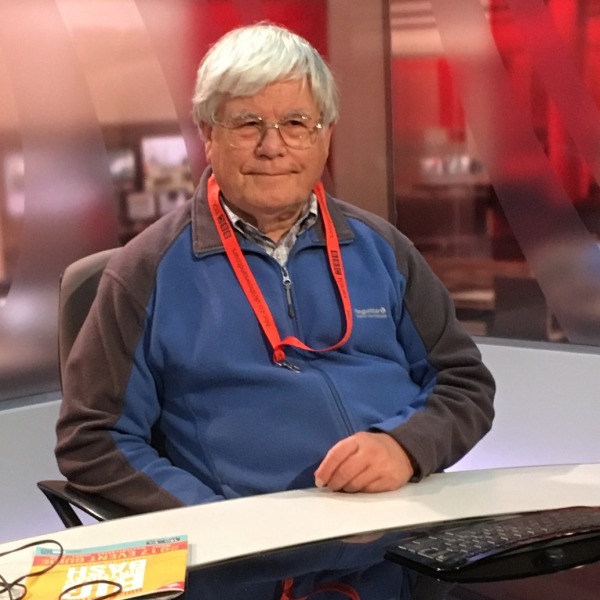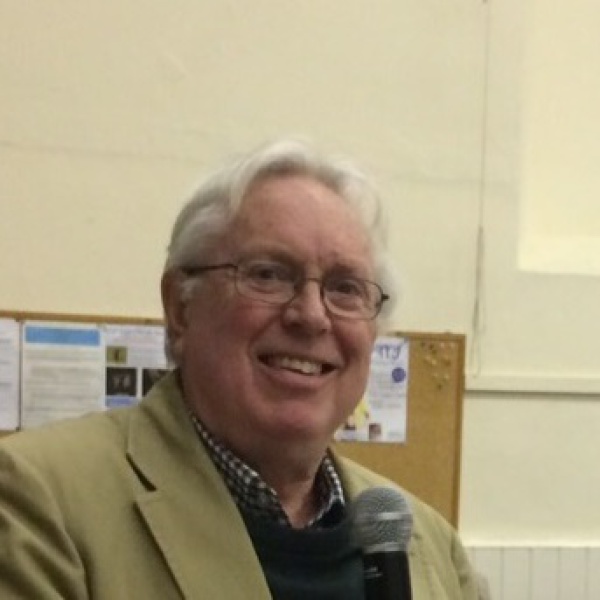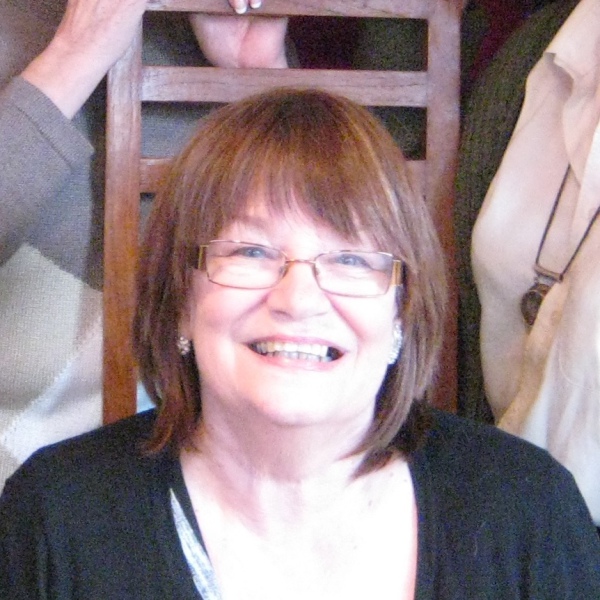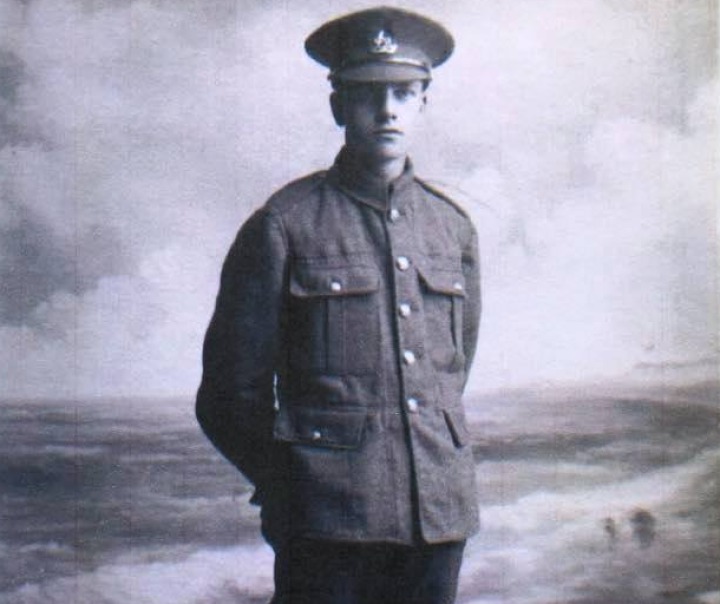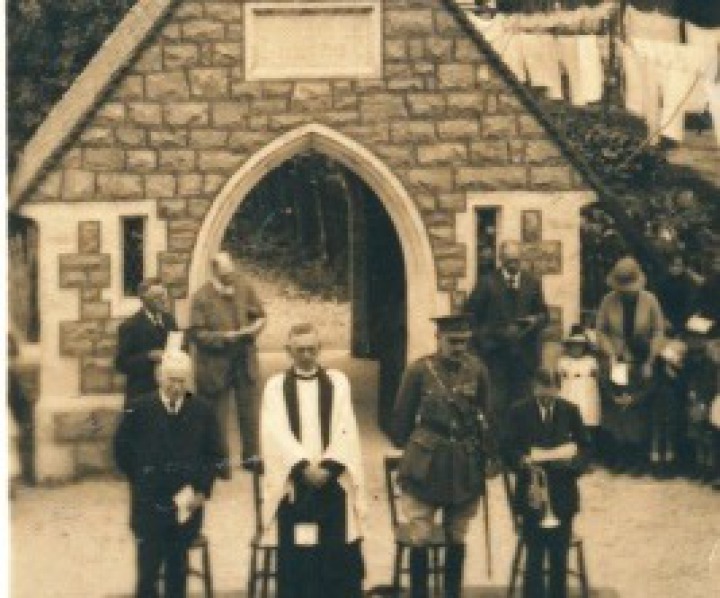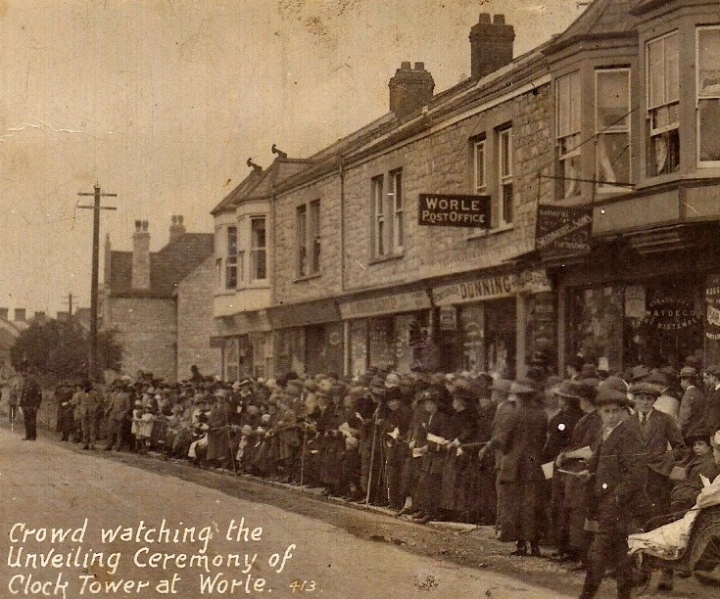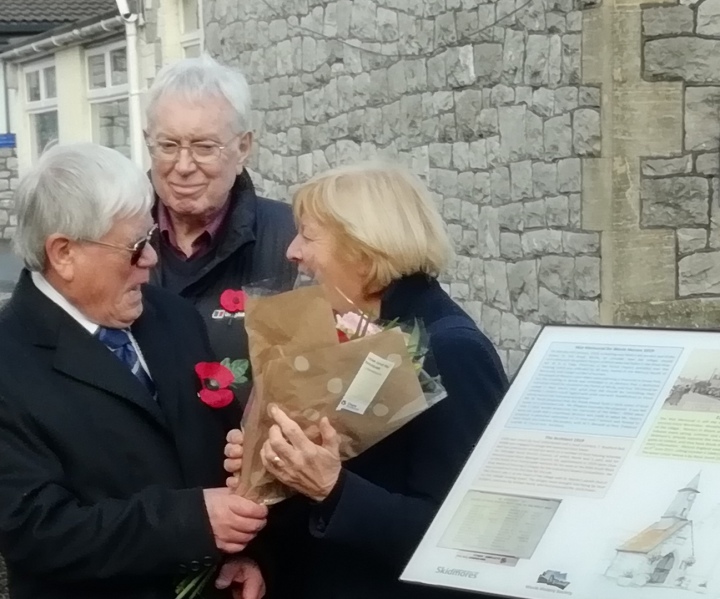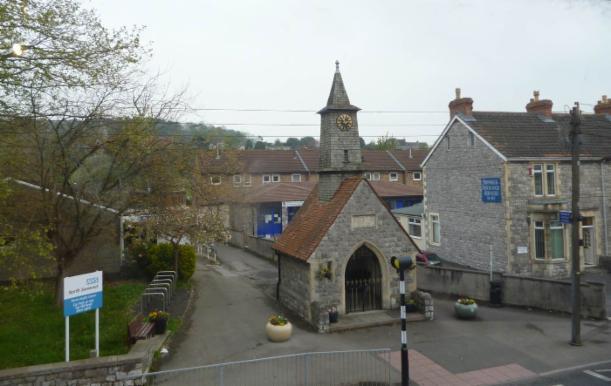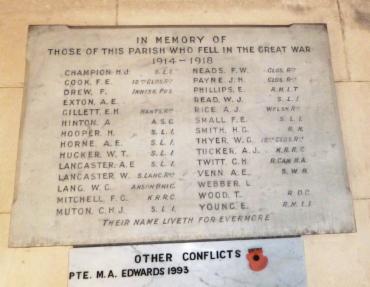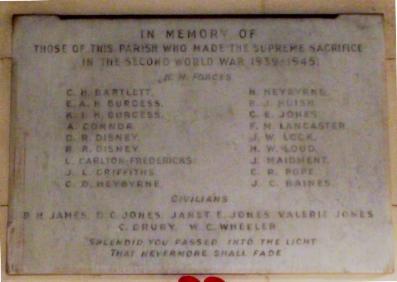
Worle War Memorial and Clock Tower
The War Memorial and Clock Tower on the north side of Worle High Street is familiar and a comfort to all of us, but how much do we know about it? When the village, the country, the empire and the
allies were recovering from World War One, communities everywhere were erecting memorials to the men and women who had lost their lives in the conflict. Worle was no exception and the local community
raised the £500 needed to pay for the unique clock tower memorial. Mr. T. Bradford Ball was engaged to design the new building, overseen by a committee drawn from the Parish of Worle. The picture of
the clock tower further down the page was taken in 2011 from the upstairs windows of Skidmores and Sons.
Please note that Frank Gosden has researched the background to the building and the people commemorated therein. He would be happy to pass on any information you may need about your ancestors. Email addresses are below..
2023 update: Renewed effort to research the background of the people commemorated. Please let us know if you have any information, however insignificant you think it may be. Thank you.
Pictures from History
The story of our War Memorial began on January 11th, 1919 when a meeting of the Parish was held. The following report is taken, verbatim, from the Weston Mercury.
Names are given in blue to enable easy recognition. Photographs of the marble memorial tablets appear at the foot of the page, following the article.
WAR MEMORIAL FOR
WORLE HEROES
_______________________
PARISH TO ACT INDEPENDENTLY OF WESTON
__________________
A largely attended meeting of the parishioners of Worle was held in the schoolroom on Monday evening to consider in what form the memories of those gallant heroes who have fallen in the great war
shall be perpetuated and to appoint a committee to carry out the wishes of the parish. Mr. W. H. A. Tripp, Chairman Parish Council, presided and there were present: Rev. M. I. Holme (vicar), Dr. Petty, Messrs. W. Huish, F. H. Phippen, W.T.C. Dunning, H. Hack, C. Horrell, R. K. Clay, J. Hewlett,, C.W. Maynard, F. Latey, J. Hooper, A. Curry,
G.R. Parker, M.J. Hatch, W. Neathway, H. Garland, A.H. George, S.F. Miles, W.T. Bennett, H. Pitman, E. Simons, T.W. Wood, J. White, J. Phillips, G. Cole, J. Bryant, G. Gooding, G. Yard, W.
Denmead, R. Marsh, F. Denmead, A. Bartlett, A. Swatridge, J. Thyer -. Dunn&c., &c., and a large number of ladies.
Mr. W. TRIPP, in opening the proceedings, said it was unnecessary for him to explain the object of the present gathering, but he might at once say that he
was pleased to see so large an attendance of parishioners, as this augured well for the successful carrying through of any scheme they might decide upon to perpetuate the memories of those gallant
fellows who had gone from their parish to fight in the cause of freedom and right and had fallen. Moreover it showed that they who had been spared the horrors of what had been experienced by
thousands in Belgium and France, held in proper appreciation and in a right spirit of thankfulness, the sacrifice made by these men and which prevented their country being violated by the hands of
the enemy (hear hear).
At the last meeting of the Parish Council the matter of a memorial to their gallant dead had been brought up, and it had been then decided that the parish should be consulted, and the opportunity
given for a full discussion of any scheme which might be then brought forward.
In the meantime, however, Weston-super-Mare had forestalled their scheme. He did not desire to say anything unkind, but he thought that before including Worle in their scheme, Weston might have made
some attempt to ascertain the feelings of the parishioners of Worle in the matter (hear hear). No one had apparently been asked whether Worle would desire to join Weston. He personally knew nothing
about it, and certainly nothing had come before the Parish Council – it had simply been taken for granted. He was obliged to say, however, that personally, he was not in favour of Worle joining
Weston (hear hear). He felt it would be much better they should do something as a parish, and if their memorial took the form of any kind of erection it should be erected in the parish where
parishioners could see it without having to go to Weston (hear hear). Worle was a large parish and they ought to be able to carry through a scheme which should be worthy of the glorious memory of
their heroes who had fallen, and worth of the parish. He was assured the general feeling was that the memorial for Worle soldiers should be situated in Worle Parish. No doubt many of those present
had schemes for perpetuating the memories of those who would never come back amongst them, and he desired that any who had any suggestions should make them at the present meeting so that every idea
could be adequately discussed, and in the end on schemes unanimously adopted. He had heard of several schemes which had been suggested, and whilst he favoured no particular scheme himself, it might
be that some were desirous that their particular scheme should be carried out. It was very evident that if they were going to make the succes[s] they all desired of the undertaking they would have to
confine all their energies to the scheme which that meeting would ultimately decide upon, and therefore he asked that anyone whose pet scheme might be cast aside for another by the meeting, would
work just as hard and enthusiastically for the scheme which might be decided upon. All should be united in their desire that what they did should be something their children’s children could regard
with pride and with thankfulness to those whose names the memorial would hear (applause).
In conclusion Mr. Tripp read a letter from Mr. H.N. Day, who, after apologising for his inability to be present owing to a cold, said that although many
schemes might come before the meeting, only one could be adopted, and he hoped that in the scheme ultimately decided on everyone would be united and use every effort to make it an unqualified
success. When they came to think what the brave heroes their brothers in Christ had suffered, surely they in their turn would rise to the occasion and raise a memorial which could be considered
worthy of the parish. He had much pleasure in giving £20 to whatever scheme might be adopted. Mr Day added that this was really more than he could afford, but he thought everyone ought to sacrifice
something. Money and stock would have been of little use had the enemy won, and if they were to raise a memorial worthy of those who kept the enemy from our shores, everyone must contribute
liberally, and give even more than they could afford – The Chairman then invited suggestions.
Mr. W. HUISH proposed that the parish erect a memorial clock tower to be built of local stone with marble panels on which should be inscribed the names of
those lads who had fallen for King and country. This he thought would prove acceptable and lasting memorial, and one on which the children for generations to come could look with pride. The clock
tower should be erected in as prominent a site as could be secured.
Mr. G. R. PARKER said he thought before they could do anything in the way of adopting a scheme they ought to have some idea of the amount of money which
would be at their disposal or, in other words, their scheme would have to be governed by the amount they had to expend. He thought it might be found desirable first of all to appoint a committee who
could proceed with the collecting. He had heard it suggested that alms houses should be erected, but such a scheme would run into £700 or £800 at least, and therefore before they could decide on any
scheme they ought to be in a position to know to some extent the support which might be forthcoming.
The CHAIRMAN (W. TRIPP). The scheme would depend on the amount received, of course, but I think it would be desirable there should be a scheme – with
alternative schemes, if you like – to put before the parishioners before you commence with collecting funds.
After some further discussion,
Rev. HOLME said he was a new comer amongst them and therefore he would not venture to suggest any sort of scheme. His experience of public meetings,
however, was that there was always the very great danger that people who attended it in their hundreds or thousands sat day, looked at one another and said nothing but after something had been
decided upon by the meeting, these people were very apt to say “If only they had done so-and-so it would have been much better” (laughter) He made these remarks because he desired to impress on them
that now was the time for anyone and everyone if they so desired, to make suggestions. Let them have as many schemes suggested as the most enthusiastic of them desired before the meeting, and they
could discuss them, but for goodness sake, let them have these schemes before them now, and then they might get ahead and decide on something unanimously in the end. (hear hear).
After further discussion, during which, in reply to questions, Mr. Huish said if desirable (and he thought it was) the names of all from Worle who had fought, in
addition to those who had laid down their lives, could be engraved on the granite panels of the memorial clock.
Mr PHIPPEN seconded Mr. Huish’s proposal and said he should like to see the clock in the Centre. From this point the
clock could be seen far better than from anywhere else in the parish. He should be pleased to subscribe £10. (hear, hear)
Mr. W.T. BENNET observed that they could not do too much to perpetuate the memory of those who had given their lives in defence of their country. No words
could fully express the gratitude all should feet not only towards to fallen, but also all those who had borne the brunt of battle and had come safely through it. Therefore he was glad to know the
names of all of these were to be perpetuated. As Mr. Parker had said, their scheme would necessarily be controlled by the amount of money raised, but if a memorial clock was decided on there could be
no more suitable site than that proposed, the oval piece of land in the possession of Mr. Rogers, and he gave the suggestion his support.
Dr. PETTY observed that if they were going to erect a memorial, they should see to it that they did not erect something which would be discovered in some
300 o9r 400 years, and be pronounced by some learned old professor as very likely to have been Worle’s War Memorial (laughter). It was up to them to do their duty and their best for those who had so
well done their duty and their best for them. And they ought in this regard to do their best for those coming after them, for the children who would be the future generation. Mr. Lloyd George had
said some time back that we should try and make our nation an A1 nation, and we had to consider the children and endeavour to make them A1 so that if there was another war in years to come our men
would be A1 and not C3. He went about the village a great deal, and noticed the children playing in the streets, and how it was a few were not killed every day by getting under his car he could not
understand (laughter). A very much smaller village would provide all the children who could possibly take recreation in the ground suggested as the site for the clock. They might get in the seats and
the flowers which had been referred to by some speakers, but the children of Worle never. Something far bigger was required for a recreation ground: somewhere where the children could play and their
parents it and watch them and keep them under control. He understood there might be some difficulty to procuring such a site, and it might be aid they would never secure the amount of money required
to purchase it. What he suggested, however, was that the Parish Council had the power to give them the playground and provide it out of the rates, and he thought the Council should be asked to
provide such a ground, somewhere where all could go. There were several places in the village which he had in mind which would be suitable. There was the Home field of Mr. Tripp, and failing this,
there were other places - then, if it was thought a desirable site, the memorial Worle was going to erect could be place in this recreation ground.
Mr. R. K. CLAY explained that it would have to come as a recommendation from the present meeting to the Parish council that the matter of providing a
recreation ground should be considered by the council. The Parish council, after its decision, would have then to call a parish meeting to obtain its approval to the scheme, and next the matter would
have to go before the County council and the Local Government Board. This would occupy a considerable time, and it was extremely unlikely that the Board above would give its approval to the purchase
of land which formed building sites in the centre of the village when other land was procurable at much less cost.
It was subsequently decided that the meeting recommend to the Parish Council the desirability of considering the provision of a Recreation Ground.
After further discussion on the form the memorial should take, Mr. Huish’s proposal that it take the form of a clock was carried unanimously, and the following committee appointed: Dr. Petty, Revs Holme and Job, Messrs Huish, Garland, H.N. Day, Parker, Dunning, J. Hewlett, Tripp, Shepherd, Miles, March, Mann and Twitt. Misses Phippen, Shepherd, Huish,
Robbins, B. Jones, Msrs. Dowden, Mrs. Martin, Mr. W.T. Bennett, Hon Treasurer and Mr. R. K. Clay Hon. Secretary.
On the proposal of the vicar, a committee was appointed to welcome home on behalf of the parish generally the returning warriors. This committee comprised Rev. Holme and
Job, Messrs Bennett, M. Twitt, Garland, Mrs. Clark and Mrs. Martin.
Other promises received towards the memorial comprised Mr. Garland £5; Mr. S. Twitt £5; Mr. J. Hewlett £10.

